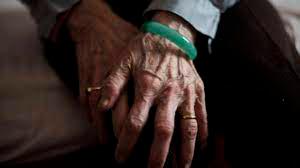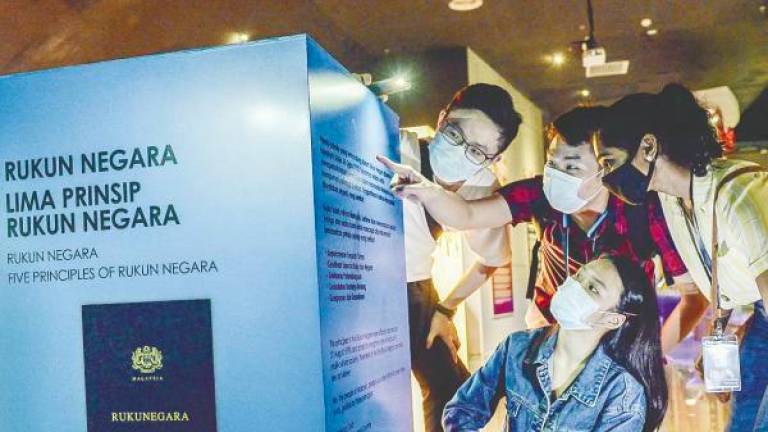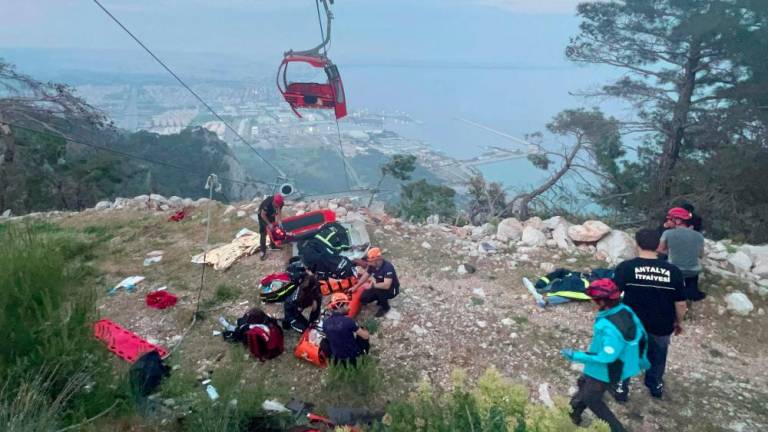KUALA LUMPUR: Kamelia Felisya Abd Rahim, who works in the public sector, is flabbergasted at the attitude of a couple who resides in a unit next to hers at a multi-storey apartment building in Ampang, Selangor.
Kamelia Felisya, 35, who was previously unhappy with their lack of cleanliness, is now upset that the couple and their son – who is married and stays with his family in another area nearby – are openly violating the standard operating procedures (SOPs) to stem the transmission of Covid-19.
Apparently, the son, wife and their young son visit the couple almost every weekend although the movement control is still in full force.
During this period, people are only allowed to leave the house if they work in an essential sector or to buy necessities or for hospital appointments or Covid-19 vaccination. As reiterated by the government, visiting is certainly not allowed, even if it is just to look in on one’s parents who may live a few hundred metres away.
Kamelia Felisya is livid for a good reason. She is worried she may contract Covid-19 considering that her neighbour’s son, wife and child enjoy relaxing or playing badminton outside on the apartment grounds. Worse still, none of them would wear a mask.
“Whenever they are visiting, this family would keep their unit door open and spend time outside. I am worried because the Delta variant spreads easily in the air. No one would know their (the family’s) health status because many people with Covid-19 are asymptomatic.
“Whenever they are playing badminton out there without wearing their mask, I dare not go out. They usually come on Sunday which is the day I go out to buy groceries,” she told Bernama.
The neighbour’s son and his family may be residing close by but that fact, as well as lack of monitoring by enforcement agencies, does not sanction their visit to his parents’ house as it is a clear violation of the SOPs.
Doesn’t he realise that the visits could put his elderly folks and young child at risk of contracting the infectious disease?
The excuse “my house is just a few hundred metres away, so why can’t I go visiting” also arose in a video uploaded by Columbia Asia Hospital Cheras Emergency Department medical officer Dr S. Malar Santhi on her Instagram account, celotehdrmalar.
The doctor, who speaks Bahasa Melayu fluently and often shares health-related videos, said it was regretful that some people were using the above excuse to flout the SOPs.
“One of my patients, a young married man, was tested positive for Covid-19. When I asked about his contact history, he said every night after dinner, he would drop by his mother’s house, located 500 metres from his home.
“When I asked if he knew the MCO was in force, he replied, ‘It is MCO but my mother’s house is just nearby, can’t I go there?’ I don’t understand, we have been having these movement restrictions for nearly two years and he still doesn’t know what MCO is about.
“One cannot go to any other person’s house during the MCO. So, is this the fault of politicians? I understand the state of our current political situation but this problem concerns our attitude. Since we are the ones not adhering to the SOPs, we shouldn’t point the finger at others,” she lamented in her video.
Dr Malar’s ranting is not off the mark. The ongoing pandemic, which has led to Malaysia registering over a million Covid-19 positive cases, has seen netizens using social media to play the blame game, particularly when daily new cases hit record highs.
They should, by right, be honest and ask themselves if they are really complying with the SOPs or have a lackadaisical attitude. The evidence is out there – community-related clusters are on the rise, no thanks to those who make light of the SOPs.
Some people may say they are tired of complying with the SOPs or suffering from pandemic fatigue but are they aware that this Covid-19 virus is tireless and always mutating to ensure its survival? The implication of this is the emergence of new and more aggressive and resilient variants.
As of now, experts have identified the Delta variant as the most contagious Covid-19 mutant as it is airborne and hence, transmits faster, compared with other variants such as Alpha, Beta and Gamma.
Nonetheless, there are people who live in denial, thinking that the virus will not infect them or their families. But the statistics show that thousands of people are getting infected and three-figure fatalities are being reported daily.
Commenting on the attitude of people such as Kamelia Felisya’s neighbours, Universiti Teknologi Mara infectious disease medicine expert Dr Rosnida Mohd Noh said: “They can’t seem to accept the situation we are facing with the rise in infections and very high death rate. It’s unfortunate that they only start regretting when the whole family is infected.
“From my experience with my patients and their family members, I would say that the pleasure of having get-togethers is not worth it when someone dies (of Covid-19) and others have to endure the long-term effects of Covid-19. There’s no point in regretting later.”
Dr Rosnida said the “in denial” syndrome should not be viewed lightly as it is one of the reasons why some people fail to comply with the SOPs.
As a matter of fact, statistics show that more than 90 percent of new infections being reported these days consist of category 1 and category 2 cases. Category 1 comprises asymptomatic cases and category 2, cases with mild symptoms. Such a situation can potentially cause the “in denial” group to continue disregarding Covid-19 protocols.
Beginning last month, the Ministry of Health (MOH) started issuing data on daily new Covid-19 cases in accordance with the category of the disease they were in. There are five categories of Covid-19 and according to MOH data, only a small percentage of daily cases were in categories three to five.
Dr Rosnida, however, warned that Covid-19 is a dynamic disease and that a patient’s condition can deteriorate quickly from, for instance, category two to category four or five within a few days after diagnosis, more so for those with a history of comorbidities such as heart disease, diabetes and hypertension
“What we often see now are patients who are initially in category 1 or 2 but their conditions deteriorate fast to category 4 and 5 when they need respiratory aid. It’s worrying to note that more young people are being infected now, compared to the early stages when the majority of Covid-19 patients were senior citizens and those who had comorbidities such as diabetes and other chronic illnesses,” she said.
Dr Rosnida said with the emergence of variants of concern (VOC) such as Delta, “we are seeing more infections among young people and children, and this new variant is also causing more severe symptoms and a higher death rate”.
Urging people to break out of denial and commit to taking care of themselves, she said it will not be easy to win this war against Covid-19 if the public fails to act responsibly.
“Get out of the denial syndrome. For those who are tired, rise again to fight this pandemic together. We shouldn’t give up because this Covid-19 virus doesn’t give up at all and continues developing.
“To break its chain of infection, we must unite to comply with the SOPs as well as get the vaccine as this is the way out of the crisis,” she added. -Bernama













